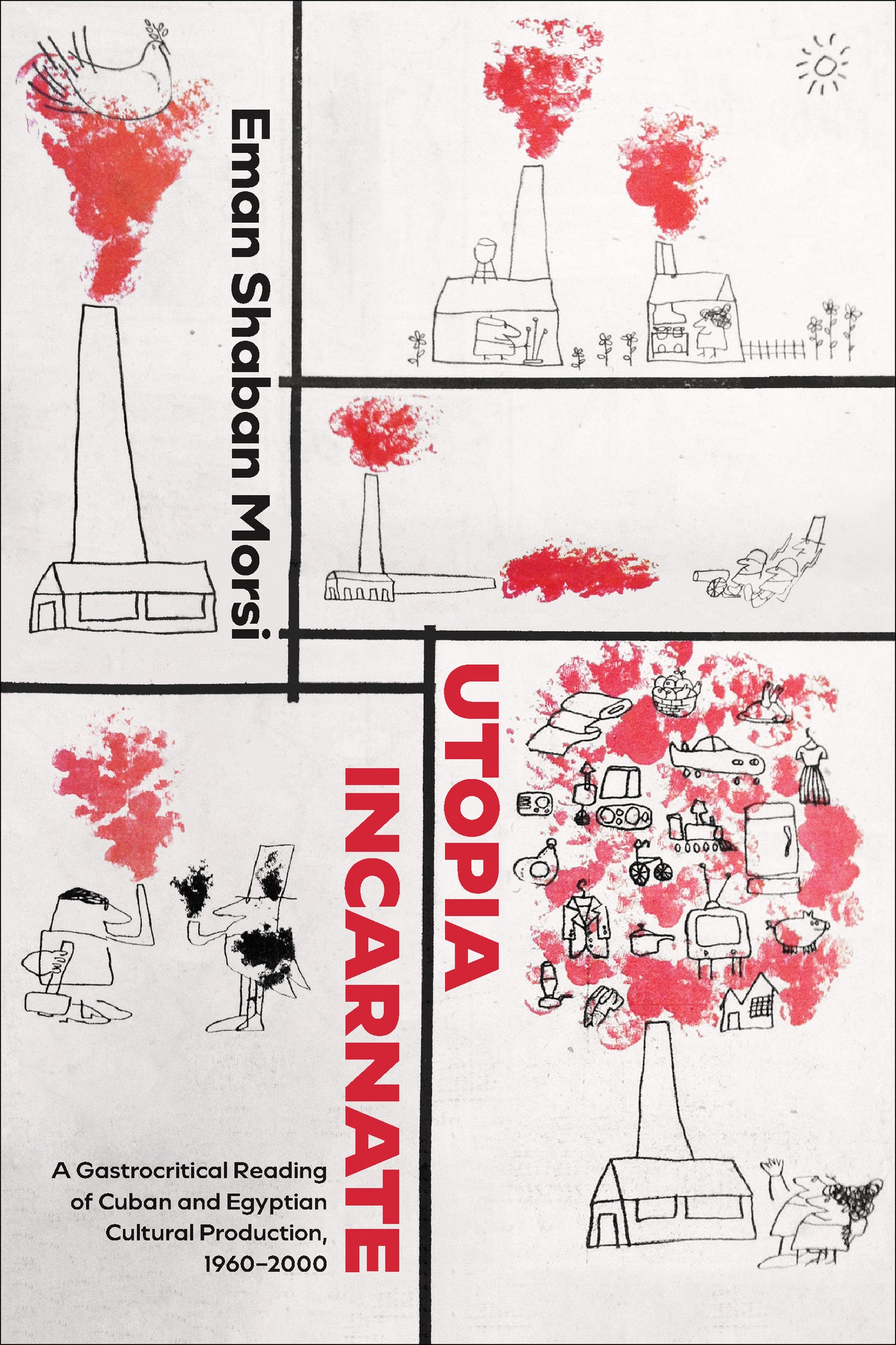We're sorry. An error has occurred
Please cancel or retry.
Utopia Incarnate

A groundbreaking analysis of the cultural afterlives of mass utopia in Cuba and Egypt.
Utopia Incarnate maps a shared mass utopian discourse of plenty in Cuba and Egypt in the second half of the twentieth century. Taking a comparative, "gastrocritical" approach, Eman Shaban Morsi traces the centrality of tropes of meat, as a literal and figurative embodiment of the contradictions of modernization, in plays, songs, poems, political speeches, cartoons, and films from both countries. Consolidated and entrenched in the early 1960s, at the height of their respective socialist revolutionary projects, this rhetorical and conceptual repertoire provided—and continues to provide—writers and artists with means for expressing ideals of citizenship, critiquing state policies, and imagining a just and equitable society. But, as the distance between what could have been (the promised world of abundance) and what was (the lived reality of rampant economic shortages) grew in subsequent decades, it became impossible to conjure early revolutionary visions of plenty without irony. In developing a framework of ironic repetition to explicate the paradoxical legacies of mass utopia in these two contexts, Morsi provides a new model for "South-South" literary and cultural comparison.


"Utopia Incarnate breaks away from comparative methodologies that hinge on direct cultural contact, whether through migration or understandings of aesthetic influence. Instead, Morsi uses the geopolitical positioning of two countries in the Global South to point to parallel manifestations of the same trope. Creatively pairing Cuba and Egypt, Morsi shows how, in both contexts, the eradication of hunger, specifically via the consumption of meat, has functioned as a marker of having broken free from colonial dynamics, redistributed wealth, and achieved progress. Hence, the repeated references to meat in literature, film, and the popular culture of these two countries are not mere coincidences but rather index pivotal sociopolitical dynamics of the Global South." — Christina Civantos, author of Jamón and Halal: Lessons in Tolerance from Rural Andalucía
"For some time, the field of comparative literature has been moving toward a more global view of itself. Particularly challenging has been the search for ways to study literatures of the world comparatively without filtering the study through Europe. Utopia Incarnate represents an important new direction in this disciplinary history. Morsi presents a thorough analysis of two Global South cultures that overlapped in anti-imperialist and anti-Western historical moments, establishing a cogent basis for comparison among cultural ephemera, languages, and dialects that are not typically compared or even considered comparable. Few comparative studies of the Global South have this level of detail and documentation." — Hosam Aboul-Ela, author of Domestications: American Empire, Literary Culture, and the Postcolonial Lens




